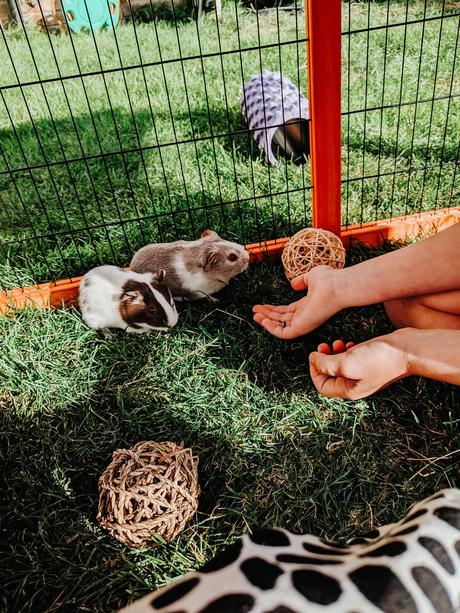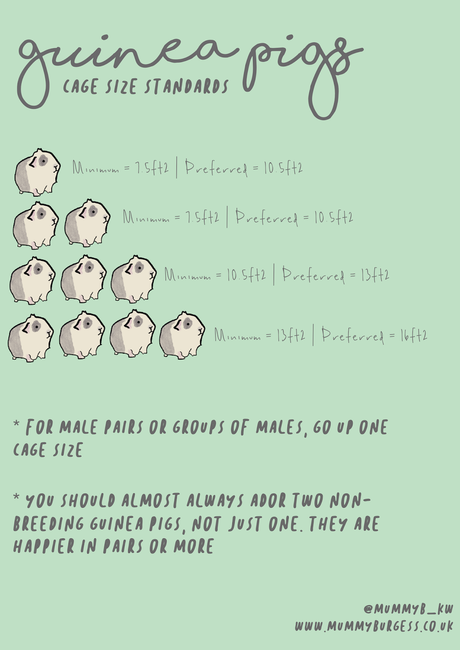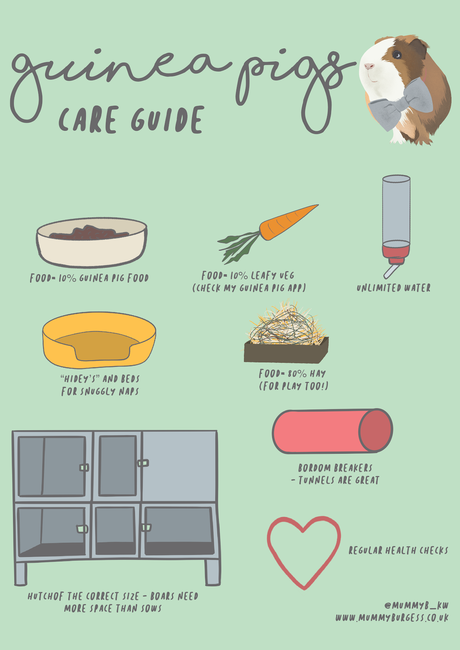
Type of guinea pigs, sex and where to get your new fluffy bundles
Just like cats & dogs, there are a number of breeds of guinea pigs that you can come across, if this is something that is important to you then you can find out more about different breeds here. I love "Teddys" and originally looked at these but then I came across a local rescue center. I have a really hard time paying for particular breeds when there are so many sat in rescues waiting for their forever homes. I felt the same when we got our dog, Lady and we decided to adopt.
The next thing you should consider is the sex of the guinea pigs, both come with pros and cons. Quite often people will recommend against boars (males) because they can become aggressive which can lead to fighting and then, sadly, separation. However, if you find a reputable rescue they can help with bonding and ensure you get boys that will live together happily. Some of you will be thinking here, "well that doesn't matter because we only want one" - well, you're going to have to re-think that because guinea pigs need to be in pairs or groups. They're social animals and shouldn't ever be kept alone.
As I mentioned there are a number of places you can get your fluffy bundles, from breeders, pet stores and of course rescues. However, please ensure the animals are sexed properly to avoid unwanted pregnancies and be mindful that guinea pig gestational period can be up to 72 days, so if you're getting a sow (female) ensure she hasn't been exposed to boars.
We ended up rescuing ours (boars) after their mom was rescued and found heavily pregnant (she gave birth to six babies - which is quite a lot for a guinea pig!).
Where should they live?
This is completely dependent on your own situation. Many prefer their guinea pigs to be kept inside but for some, this just isn't possible due to space. We have decided to keep ours outside due to the lack of indoor space. Guinea pigs need a lot more room than you would originally think (small spaces can cause unhappiness and fighting). Here is a little guide to help make sure your guinea pigs have the right space depending on sex and the number of pigs.

There are plenty of hutch options and if you're opting to have your piggies indoors many use what is known as C&C cages, which is a modular cage, made from grids which you can easily build yourself. These are really ideal for customising to fit various different spaces in your home.
Once you've got your piggies a home you will want to make sure it's nice, comfy and cosy and there are a number of ways that you can do this. In terms of bedding, there are a number of options again, such as sawdust (though piggies can get respiratory issues so some avoid sawdust), fleece or even bath mats! I think it's personal preference and a bit of trial and error to see what works for you. We are using a combination of fleece and bath mats. We sweep "poos" daily and then stick the mats and fleece in the wash every 3-4 days which we have found relatively quick and easy in terms of cleaning.
You will then need to include "hidys" where guinea pigs can snuggle, sleep and keep warm. Tunnels, hay, bowls for food, bottle of water etc.
What do they eat?
Guinea pigs love to eat all day every day and providing the correct diet is hugely important. But I have found this equation a pretty good way of doing it - 80% hay, 10% guinea pig pellets & 10% leafy greens, veg & fruit. Now not all fruit and veg are safe for guinea pigs and some can only be eaten 1-3 times a week. An absolutely incredible app called My Guinea Pigs, will help you to plan your piggies diet and will even create shopping lists and meal plans! You can download it here.

I would love to hear if you have guinea pigs or are considering making them apart of your family. I hope this mini-guide has been useful and be prepared for more hints and tips in future posts.
K Elizabeth xoxox
